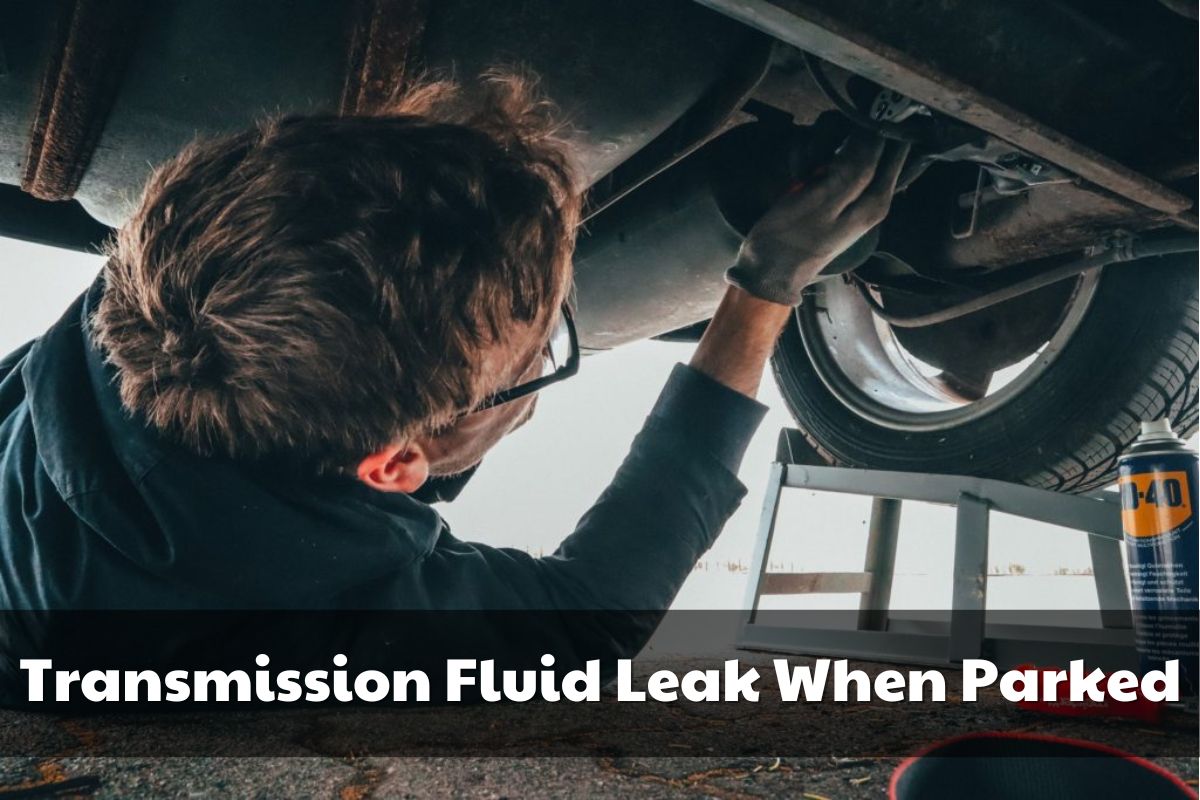The most common causes of a leak are a leak in the transmission pan, damaged fluid lines or pan gasket, and a faulty torque converter. Dealing with a transmission fluid leak when parked can be a frustrating experience for car owners. In this blog post, we’ll take a closer look at common causes of transmission fluid leaks when parked and provide tips on how to fix them. Read on for an inside look at understanding and resolving the issue of a transmission fluid leak when parked.
Search Terms: sudden transmission fluid leak, transmission fluid leaking from front of car, transmission fluid leak symptoms, transmission fluid leak only when running, how long can i drive with a transmission leak, transmission fluid leak but no puddle, transmission fluid leak stop, transmission fluid leak between engine and transmission, Why transmission fluid leak when parked automatic, Why transmission fluid leak when parked chevy
How To Find A Transmission Leak?
The first step is to find a clean and level space to park your vehicle overnight. Then, lay out a clean drop cloth underneath your vehicle and park on top of it, making sure the entire engine block and transmission are over it. When you come back the next day, check the cloth for stains.
If you spot a red or light brown puddle of thinner fluid, it may be a sign of a transmission leak.
What causes transmission fluid to leak when the car is parked?
Here are some of the most common causes for transmission fluid leaking when your car is parked:
1. Faulty Transmission Pan or Gasket
One common cause of transmission fluid leak when parked is a faulty transmission pan or gasket. Over time, the seal between the transmission and pan can deteriorate, causing it to become weak and brittle, resulting in fluid escaping. Loose bolts or holes in the pan gasket can also cause transmission fluid to leak.
To prevent this issue, make sure to inspect the pan and gasket position regularly, especially when performing a fluid change. Look out for rust that may cause holes in the pan, and if you suspect any damage, consider replacing it.
2. Bent Transmission Pan
When it comes to replacing transmission fluid, it’s important to be careful and gentle to avoid any mishaps. However, if too much force is used to remove the sealant, it can result in a bent transmission pan. These pans are not the most durable, and they can easily bend, causing gaps that allow transmission fluid to leak out.

To prevent this issue, it’s crucial to be careful and gentle when replacing transmission fluid. If you suspect a bent transmission pan, it’s best to take the vehicle to a professional mechanic. They can inspect the pan and repair any damage. If the damage is severe, they may recommend replacing the entire transmission pan with a new one
3. Leaking Transmission Drain Plug
When changing the transmission fluid, it’s essential to be cautious and avoid using too much force. Doing so can result in one of the most common faults – damage to the drain plug.
To prevent a transmission fluid leak, a repair professional must tighten the drain plug according to factory specifications, neither too loose nor too tight. Moreover, it’s critical to replace the O-ring sealing the plug every time the transmission fluid is replaced.
4. Damaged Fluid Lines
One common reason for the leak when the car is parked is damaged fluid lines. These lines are responsible for carrying transmission fluid to the cooler in front of the car. Although they are made of durable materials like steel or aluminum, they can crack or break over time. This may result in a leak that can be costly to repair.
Keep a close eye on your vehicle’s transmission lines and make sure to quickly address any signs of visible wear, such as cracks, leaks or rust. Regular inspections can help prevent an unwanted surprise that could end up costing you time and money!
5. Dirty transmission fluid
Your car’s transmission fluid is just as important as engine oil. Over time, dirt and debris can build up, causing clogging and excess pressure in the transmission lines. If ignored, this buildup can cause pipes to crack or burst and lead to leaks.
To prevent transmission fluid leaks, it’s important to regularly flush and change your vehicle’s transmission fluid. Make sure to use only high-quality fluids that are compatible with your car’s make and model.
Additionally, checking for signs of wear on the hoses, pipes, seals and other components can help spot any potential issues before they become costly repairs.
6. Torque Converter Leak
The torque converter may not be the most well-known component of a vehicle, but it plays a vital role in the smooth operation of the power system. It’s responsible for transferring the transmission fluid, enabling the turbine to function properly. However, things can quickly take a turn for the worse if the torque converter develops a leak.
A small crack or any damage to the coupling can result in the transmission fluid escaping, leaving you stranded and vulnerable.
7. Damaged Seals
When it comes to automatic transmissions, seals play an important role in preventing fluid leaks. However, these seals are not impervious to damage, and deterioration over time is inevitable. One of the most vulnerable seals in an automatic transmission is the input and output shaft seals.
These seals are crucial as they’re located where the torque converter connects to the transmission and where the transmission connects to the wheels. Different temperatures can affect the integrity of these critical seals, causing them to degrade, warp, and ultimately give way to leaks.
If any of the seals are leaking or damaged, it’s important to have a professional mechanic replace them. It’s also essential to use OEM-grade seals as they will last longer and provide optimal protection against any leaks. Also, don’t forget to regularly inspect the seals and make sure they are not cracked or deteriorated.
8. Overheated Transmission
When your vehicle leaks transmission fluid only when it is parked, it can be a sign that the transmission has been overheating. This means that too much stress has been put on the system from high speed or constant acceleration, especially when driving in hot weather.
The seals that prevent the fluid from leaking can harden and loosen as a result of this heat, causing them to let some of the fluid escape.
To prevent this problem, make sure your car is not being overworked. Take frequent breaks when driving in hot weather, and avoid aggressive acceleration.
How To Prevent Transmission Fluid Leaks When Parked?

The best way to prevent transmission fluid leaks when parked is to regularly inspect the transmission pan and gasket for rust and damage.
Tightening any loose bolts can also help. Additionally, performing regular fluid flushing and checking hoses, pipes, seals, and other components for wear can prevent leaks.

I’m Timothy Ballard, owner of a used car dealership in Springfield. I love just about everything automotive, but I have a special place in my heart for trucks. I’m an ASE Certified Master Technician, so I know my way around a car. In my spare time, I enjoy traveling with my family and hiking new trails.

Common causes of leaks in the transmission system include a leak in the transmission pan, damaged fluid lines or pan gasket, and a faulty torque converter.
Over time, the seal between the transmission and pan may deteriorate, leading to corrosion, cracking, or wear. In some cases, it may even dissolve completely, resulting in transmission fluid leaks when your vehicle is parked. To prevent this issue, it is advisable to regularly inspect the pan and gasket position for any signs of damage or vulnerability. This proactive approach will help maintain optimal transmission performance and minimize potential complications.